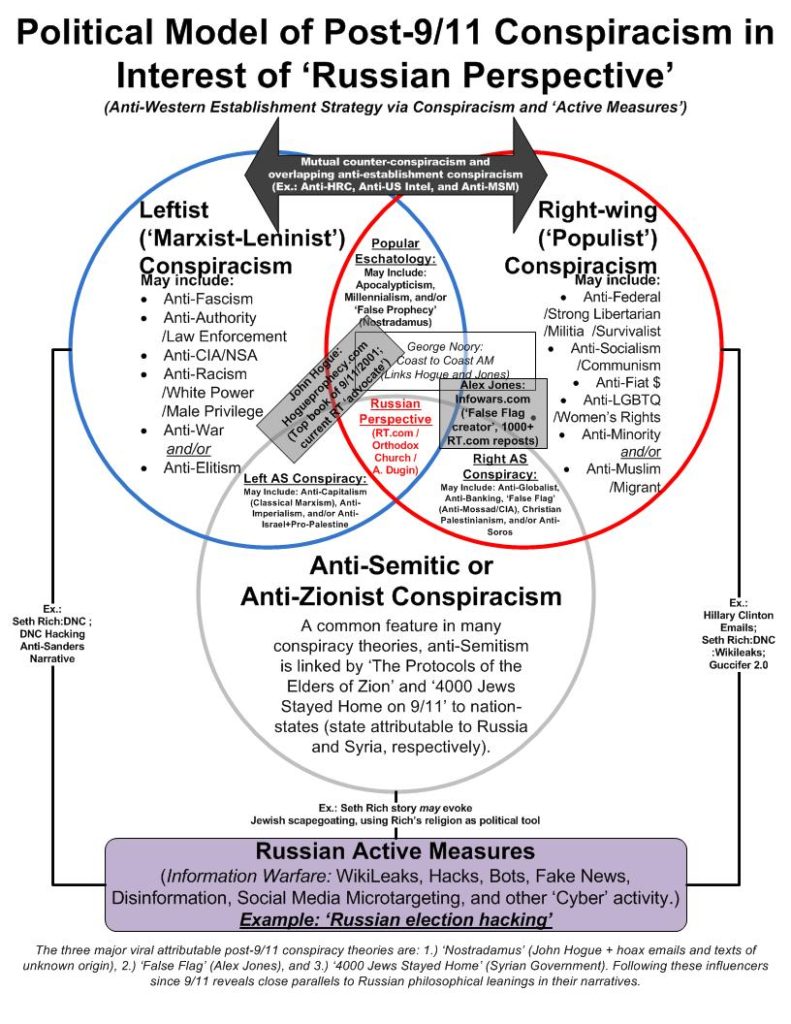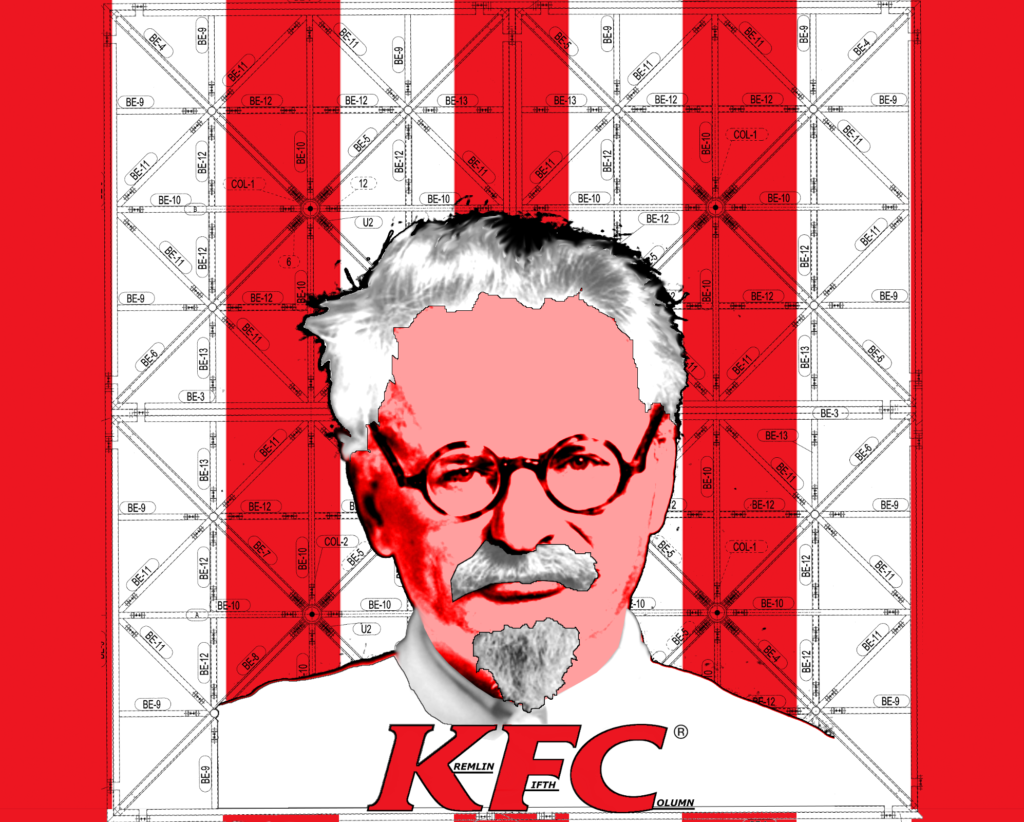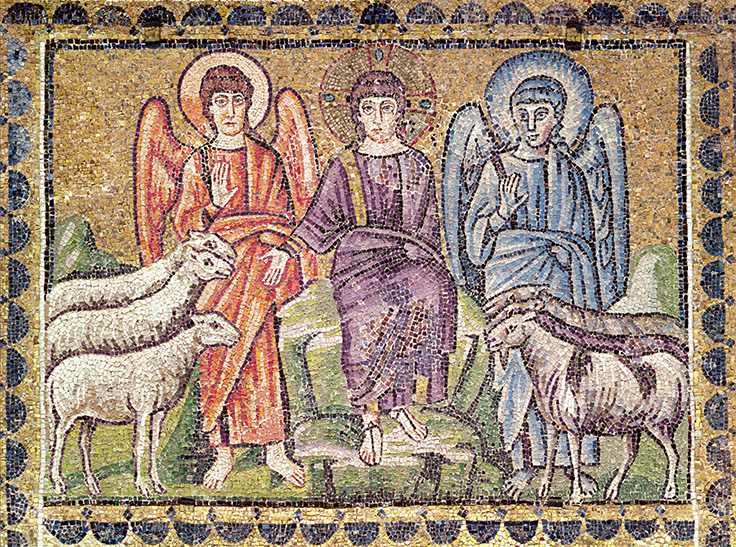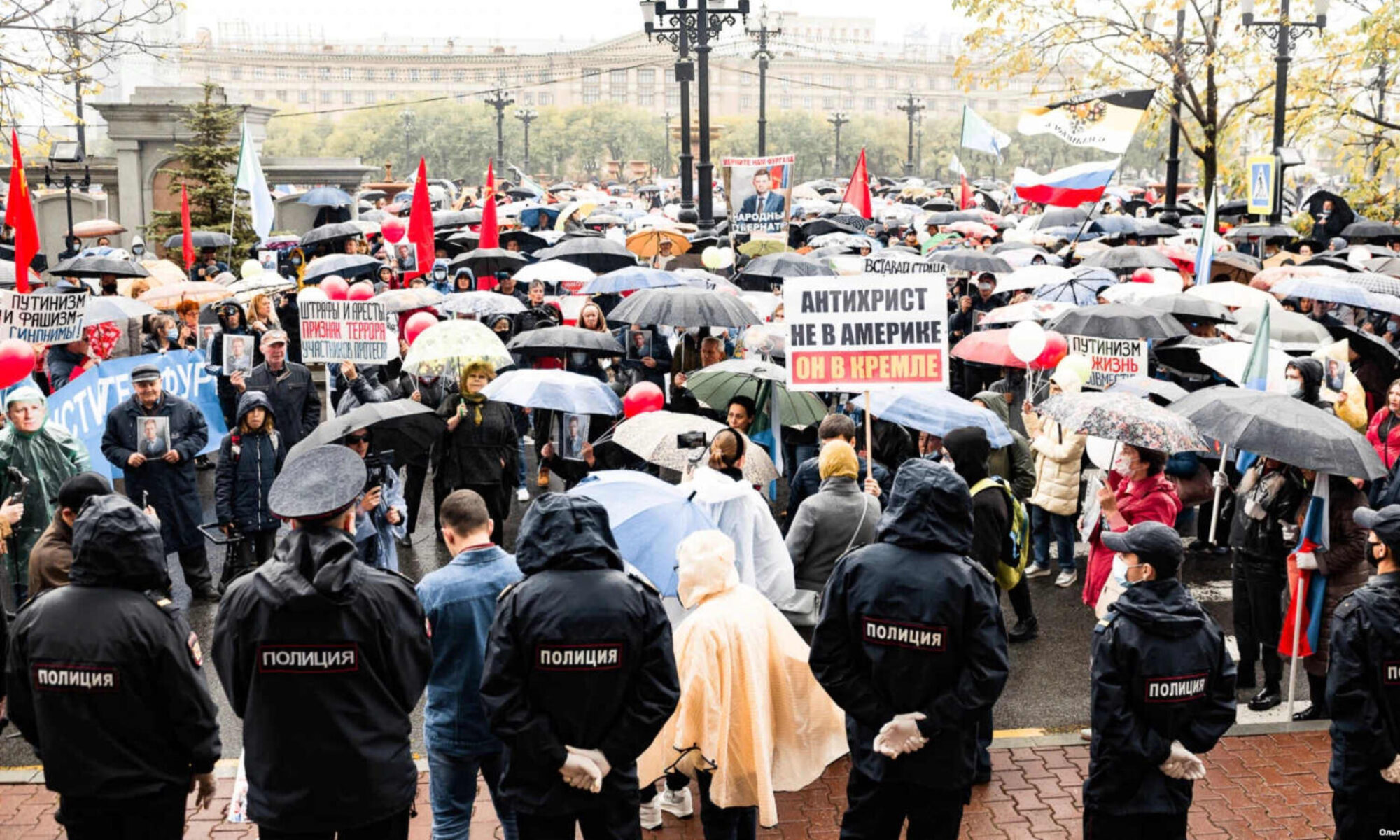Some of Alexander Dugin’s recent writings referenced the concept of “Schizowars” (Шизовойны) [1] which was a term I coined in English in December 2018 and defined as “The use of psychoanalytic/psychographic approaches to exacerbate divisions in organizations and societies by inducing a state of conflict and paranoia, often through the use of strategically architected and deployed disinformation.” [2]
Certainly it was curious for me to wonder if Dugin may have been reading my work, as much as I have been reading Dugin. I was reminded of several quotes. The first was FBI profiler Robert Ressler’s mantra borrowed from Nietzche: “He who fights with monsters should look to it that he himself does not become a monster. And when you gaze long into the abyss, the abyss also gazes into you.”
I was also reminded of the familiar phrase “You may not be interested in [the] war, but [the] war is interested in you”; which is a saying popularly attributed to Leon Trotsky. Interestingly, a study of history in relation to this quote however reveals that it is instead likely a paraphrase of several statements about the dialectic, which may be primarily attributed to a synthesis of a 1940 debate between New York University Professor James Burnham and Trotsky.
Burnham had said “I do not recognize dialectics, but, as you say, dialectics recognizes me” to which Trotsky had (in part) replied “Burnham doesn’t recognize dialectics but dialectics does not permit him to escape from its net. He is caught as a fly in a web.”
Ultimately, it seems that the popular version of the quote referencing war comes from a careless reading of the 1977 book “Just and Unjust Wars: A Moral Argument with Historical Illustrations” by Harvard Professor Michael Walzer which included the statement: “War is most often a form of tyranny. It is best described by paraphrasing Trotsky’s aphorism about the dialectic: “You may not be interested in war, but war is interested in you.”” [3]
Perhaps it is poetic that the popularly understood, and yet misattributed statement about “war” seems to emerge from the synthetic result of a dialectical process between Trotsky and Burnham.
If this is not simply a case of convergent evolution in etymology, I suppose that now in the discussion of schizowar, I may be in a dialectic of sorts with Dugin which may result in synthetic meanings of this concept.
While I have posited this war in observations of an aggressive Russian nationalist political competition which divides us politically in America, Dugin seems to similarly posit a war architected on the inherent chaos between extremes, but conducted by Western democracies and directed at Russia. While I have posited that Russian ideologists seem to me to be antichristian in their behavior, they claim the West is Satanic, and they must ‘desatanize’ Ukraine.
If Russia is my monster, am I representative of theirs? The abyss gazes back…
(Disclaimer: Forgive me if this blog attempts to be too ‘meta’…er… metaphysical…)
Defining Schizowarfare
As a root word, “schizo” means to split, cleave, or divide; however it also has a common psychological meaning related to paranoia. In the case of schizowar, this may apply to literal methods intended to divide cohesiveness and unity of the target culture population; but it also refers to the targeted psychological effects on the individuals within that population which cause them to polarize in opposition to one another.
The basis for theorizing this schizowar and the related “Model of Russian Conspiracism” (see below) was through the observation that when given the opportunity, Russia frequently plays both sides of information conflicts, with the clear intention of fomenting these divisions in the target society.
A prominent example of this is Russian troll support for both Donald Trump and Bernie Sanders in the 2016 US Presidential election, which can arguably be seen as a factor in the political defeat of Hillary Clinton. I believe the continued polarization of US society during Donald Trump’s presidency along extremist political lines was evidence of this schizowar and an attempt to divide and destroy American society.

It was very interesting for me that in his December 6 2022, series on “A Brief History of Chaos”, Alexander Dugin treated the concept of “Schizowars” (Шизовойны). This appears to be a new term in Russian which only shows up in Google in relevant 2022 results in response to Dugin’s writing.
Dugin wrote of schizowars:
“In this case, the war does not disappear, but is placed inside the individual. The chaotic individual is at war with himself, he deepens the split. Etymologically, schizophrenia means “dissection”, “cut”, “dismemberment” of consciousness. The schizophrenic – even outwardly peaceful – lives in a state of violent rupture. He lets the war in. This is how the hypothesis of Thomas Hobbes about the “natural state” of mankind, described by this author as chaos and war of all against all, is justified on a new round. Only this is not an early “natural” state, but later, not preceding the construction of hierarchical types of societies and states, but following their collapse. We have seen that chaos is the opposite of cosmos, just as enmity is the opposite of love in Empedocles. We have also seen that Eros and chaos are alternative states of the great intermediate topos. So, chaos is war. But not every war – after all, the creation of order is also war, violence, taming the elements, their ordering. Chaos is a special kind of war, total war, penetrating deep inside. This is a schizo war, capturing the whole person in its rhizome networks.”
“Such a total schizowar does not have a strictly allotted territory. The jousting tournament was possible only after marking the space. Classical wars had theaters of war and battlefields. Beyond these boundaries was space. Chaos was given strictly designated zones of the world. The modern warfare of chaotic democracy knows no boundaries. It is being conducted everywhere through information networks, quadcopters, drones, through the mental states of bloggers who let a deep split through themselves.” [3]
As the subject here also relates to Trotsky – the original sponsor of the direct GRU predecessor which was called the ‘Registration Agency’ — I personally consider it a strong possibility – that despite his murder by Stalinist agents – Trotsky himself participated in a poetic dialectic with Stalin intended to promote global communism to emerge from the scorched earth of the battleground of Western liberalism. This could be seen as analogous to the schizowar concepts.
For example, such a chaotic ‘dialectic’ could be perceived not only in a political sense in the contrast with Stalin, but also theoretically to be perceived in the the artistic battle between Trotskyist Surrealism and (Stalinist) Socialist Realism, which both advocated for antifascism and communism.

To have taken this idea of division even further within the theoretical messianic subtext of Russian disinformation which predates the USSR (see for example Protocols of Zion), it was also interesting to speculate on Jesus’ statements about division and the devil; as well as the division of society along the lines of good and evil in the context of the separation of the sheep and the goats at the time of the final judgement.
Naming the Antichrist?
On December 25, in line with the efforts of Russian ideologists to promote unity of the Russian Federation and to prevent it from a 1991-style disintegration, Putin said: “actually, everything is based on the policy of our geopolitical opponents, aimed at pulling apart Russia, historical Russia.” “Divide and rule” – they have always tried to do this, they are trying to do it now, but our goal is something else – to unite the Russian people.” [4]
Indeed, this is also the context in which we can understand the ecumenical appeal of desatanization in an ideological context in Russia, and how Putin and other prominent figures have used this idea in recent months to promote national unity. However, preventing the disintegration of the Russian empire through the promotion of national unity has been a conscious goal of these ideologists since at least 1991 [5].
It was also interesting to note that specifically in a “Christian” sense, these quotes offer an interesting point of debating the legitimacy of Russia’s ‘Special Military Operation’ in a “schizowarfare” context. Russia has frequently framed its military activity against Ukraine in the context of a holy war with a need to “desatanize” the ideological ‘Russian world’; and similarly since early in the war, senior Orthodox Church of Ukraine (OCU) leaders have described Putin as an “antichrist of our current time“.
Clearly, Google Trends notes a clear association in the public perceptions of both Putin and Zelensky and the overall Ukraine War in relation to the “antichrist”. Thus, this idea seems to have quite pertinent information weapon value.
And now to Jesus’ teaching on division and the devil:
Matthew 12:24-28 (King James Version)
24 But when the Pharisees heard it, they said, This fellow doth not cast out devils, but by Beelzebub the prince of the devils.
25 And Jesus knew their thoughts, and said unto them, Every kingdom divided against itself is brought to desolation; and every city or house divided against itself shall not stand:
26 And if Satan cast out Satan, he is divided against himself; how shall then his kingdom stand?
27 And if I by Beelzebub cast out devils, by whom do your children cast them out? therefore they shall be your judges.
28 But if I cast out devils by the Spirit of God, then the kingdom of God is come unto you.

Matthew 25:31-46 (King James Version)
31 When the Son of man shall come in his glory, and all the holy angels with him, then shall he sit upon the throne of his glory:
32 And before him shall be gathered all nations: and he shall separate them one from another, as a shepherd divideth his sheep from the goats:
33 And he shall set the sheep on his right hand, but the goats on the left.
34 Then shall the King say unto them on his right hand, Come, ye blessed of my Father, inherit the kingdom prepared for you from the foundation of the world:
35 For I was an hungred, and ye gave me meat: I was thirsty, and ye gave me drink: I was a stranger, and ye took me in:
36 Naked, and ye clothed me: I was sick, and ye visited me: I was in prison, and ye came unto me.
37 Then shall the righteous answer him, saying, Lord, when saw we thee an hungred, and fed thee? or thirsty, and gave thee drink?
38 When saw we thee a stranger, and took thee in? or naked, and clothed thee?
39 Or when saw we thee sick, or in prison, and came unto thee?
40 And the King shall answer and say unto them, Verily I say unto you, Inasmuch as ye have done it unto one of the least of these my brethren, ye have done it unto me.
41 Then shall he say also unto them on the left hand, Depart from me, ye cursed, into everlasting fire, prepared for the devil and his angels:
42 For I was an hungred, and ye gave me no meat: I was thirsty, and ye gave me no drink:
43 I was a stranger, and ye took me not in: naked, and ye clothed me not: sick, and in prison, and ye visited me not.
44 Then shall they also answer him, saying, Lord, when saw we thee an hungred, or athirst, or a stranger, or naked, or sick, or in prison, and did not minister unto thee?
45 Then shall he answer them, saying, Verily I say unto you, Inasmuch as ye did it not to one of the least of these, ye did it not to me.
46 And these shall go away into everlasting punishment: but the righteous into life eternal.
Conclusion
After reflecting on Christ’s views of righteousness and kindness to others at the final judgement in relation to this schizowar concept and aggressive Russian Orthodox nationalism, I believe it is clear that Russia’s war on Ukraine is anything but Christian. And I am reminded of Christ’s teaching in relation to this desatanization in Russia: “and if Satan cast out Satan, he is divided against himself; how shall then his kingdom stand?”
I know Dugin remembers who Nostradamus foretold in 1999? Perhaps this would be good for an Old Believer to debate sometime after Russian Orthodox Christmas [6, 7]?
Thus as before, I close a discussion on schizowarfare with an exhortation that it is important to erect defenses against it in order to preserve unity. However, after considering the Russian perspective of schizowar as presented by Alexander Dugin, I now realize it also seems a fair conceptual framework for not only defending against Russian attacks meant to divide us, but also for chipping away at the supranational Russian empire and its ideas of its own legitimacy.
References
[1] Alexander Dugin, «Александр Дугин: Краткая история хаоса. Часть I. От Древней Греции к Постмодерну» (“A Brief History of Chaos. Part I. From Ancient Greece to Postmodernity”), Izborsky Club, December 6 2022, https://izborsk-club.ru/23628
[2] Michael Hotchkiss, “Schizowarfare: A Beginning Definition”, n01r.com, December 18 2018, https://n01r.com/schizowarfare-a-beginning-definition/
[3] Quote Investigator, “You May Not Be Interested in War, But War Is Interested in You“, August 2 2021, https://quoteinvestigator.com/2021/08/02/interested-war/
[4] Press Service of the President of the Russian Federation / TASS, «Путин назвал целью России объединение русского народа» (“Putin called the goal of Russia the unification of the Russian people”), TASS, December 25 2022, https://tass.ru/politika/16684063
[5] Michael Hotchkiss (ed), “A Word to the People 1991 (Alexander Prokhanov et. al)”, Posted December 16 2022, n01r.com, https://n01r.com/a-word-to-the-people-1991-alexander-prokhanov-et-al/ (Commentary with Translation made from reprint of original article in Sovetskaya Rossiya published July 23 1991, available at https://kprf.ru/media/filestorage/library/c65ca2_pravdamos_27_261_6.pdf )
[6]Alexander Dugin, «С Новым 1999 Годом!» (“Happy New Year 1999!“), Arctogaia, 1999, http://my.arcto.ru/public/Arctogaia-statements/newyear.htm
[7] Alexander Dugin, «Новогоднее обращение Арктогеи 2000» (“New Year’s address of Arktogeya 2000″), Arctogaia, 2000, http://arcto.ru/article/1019
